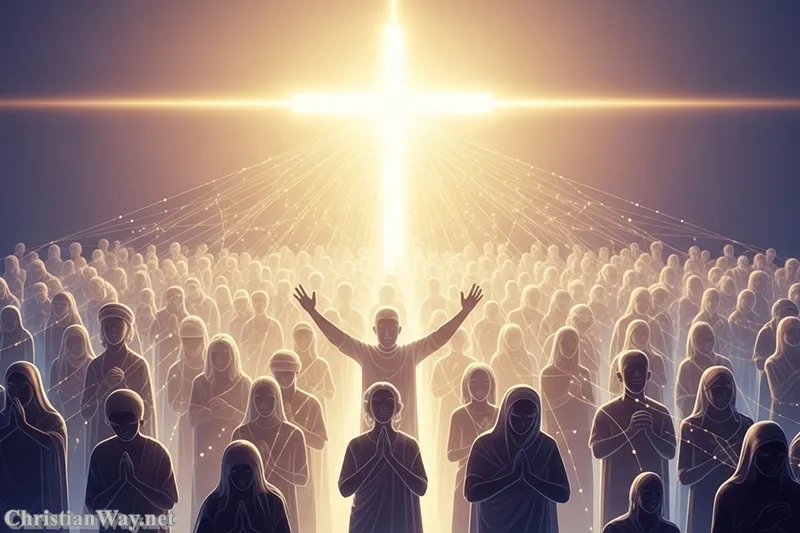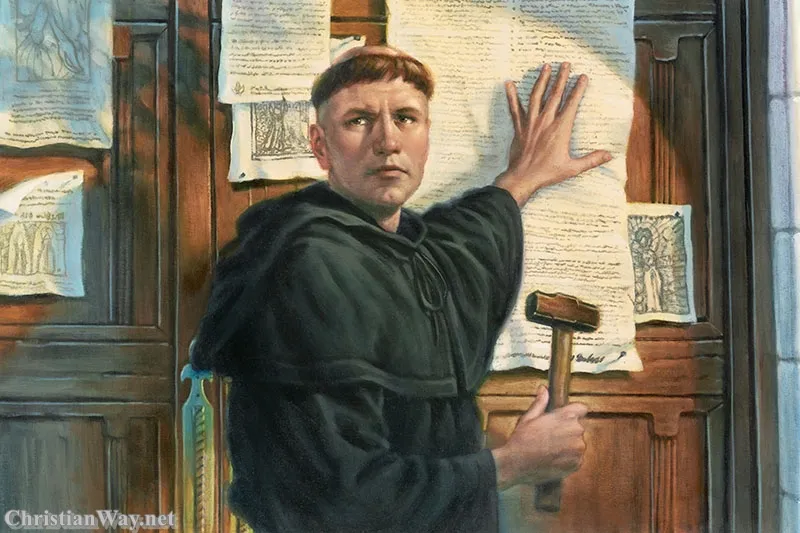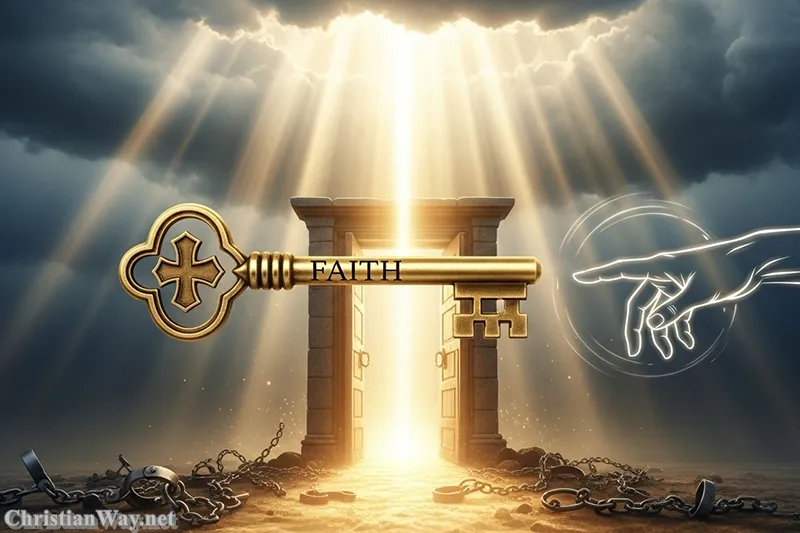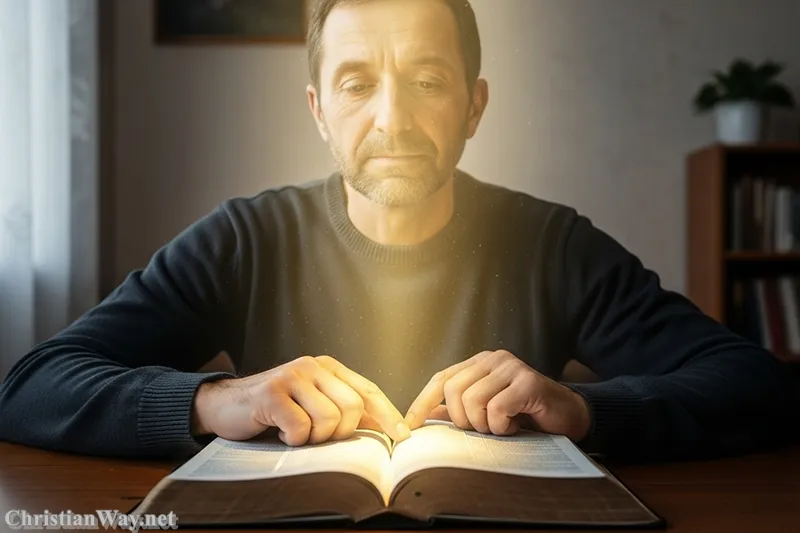Dear friends in Christ,
Every generation of believers has faced the same holy mystery: that God is one, and yet He has revealed Himself as Father, Son, and Holy Spirit. This truth, known as the Trinity, is not an abstract puzzle but the very heartbeat of Christian faith. It tells us who God is in Himself — and how He loves us, redeems us, and dwells within us.
Among Protestants, the doctrine of the Trinity stands as a cornerstone, held in unity with the early Church and confessed with deep conviction. Though Protestantism has many traditions, all who hold to the ancient creeds affirm that God is one in essence, yet three in Persons — coequal, coeternal, and consubstantial. This faith echoes through their hymns, prayers, and worship, shaping their understanding of grace and salvation.
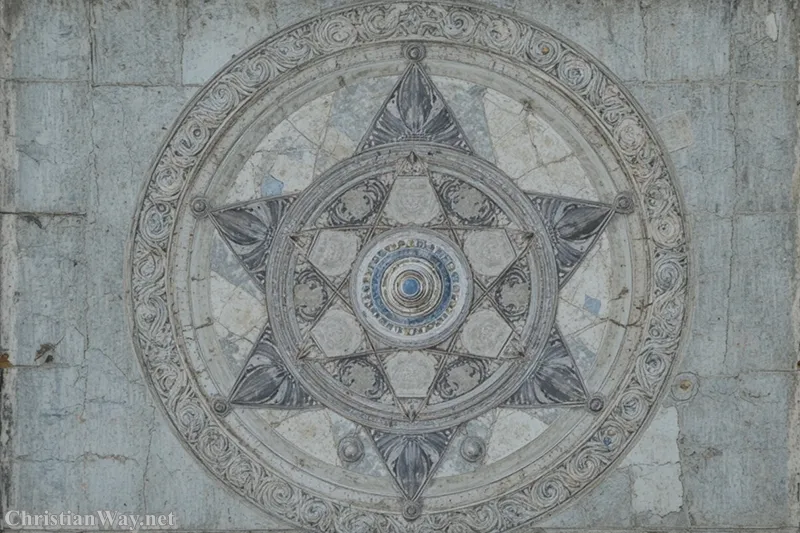
In this reflection, let us walk prayerfully through what the Trinity means in Protestant theology — not as a theory, but as the living revelation of divine love.
The Foundation of the Trinity in Scripture
The Protestant understanding of the Trinity begins, as all theology must, with Scripture alone — Sola Scriptura, the Reformation’s great principle. The Bible, inspired by the Holy Spirit, is the highest authority in matters of faith, and it is within its pages that the mystery of the Triune God unfolds.
From the first words of Genesis — “Let Us make man in Our image” (Genesis 1:26) — the plural language of God hints at a fullness within the divine being. In the Old Testament, the Spirit of God moves upon the waters, speaks through the prophets, and renews creation. Yet it is in the New Testament that this hidden glory is fully revealed.
At the baptism of Jesus (Matthew 3:16–17), the heavens open: the Father’s voice declares love, the Son stands in the water, and the Spirit descends like a dove. This moment, simple and profound, is a living picture of the Trinity at work — one God acting in perfect harmony of Persons.
Later, the risen Christ commands His disciples, “Go therefore and make disciples of all nations, baptizing them in the name of the Father and of the Son and of the Holy Spirit” (Matthew 28:19). In this single verse, Protestants see the divine unity and equality of the three Persons, joined in one Name — not names, but Name, singular.
One God, Three Persons: The Protestant Confession
Protestant theology holds fast to the ancient confession of faith drawn from Scripture and affirmed by the early Church. The Nicene Creed, though predating the Reformation, remains central to Protestant belief, especially among Lutherans, Anglicans, Presbyterians, and Methodists.
The creed declares:
“We believe in one God, the Father Almighty… and in one Lord Jesus Christ, the only-begotten Son of God… and in the Holy Spirit, the Lord and Giver of Life.”
For Protestants, this creed is not a human invention but a faithful echo of biblical revelation. It preserves the balance between unity and diversity: there is one divine essence (ousia), but three distinct Persons (hypostases).
Reformers like Martin Luther, John Calvin, and Thomas Cranmer affirmed this doctrine with passion, warning against both tritheism (believing in three gods) and modalism (reducing God to one person appearing in three modes). For them, the Trinity safeguarded the truth that God’s love is relational — not a solitary self-love, but an eternal communion of giving and receiving between Father, Son, and Spirit.
Calvin wrote in his Institutes:
“In the unity of God there is a Trinity of persons. The Son has His own subsistence distinct from the Father; the Spirit likewise has His own distinct subsistence, and yet the Son is not other than the Father, nor is the Spirit other than the Son.”
The Trinity and the Gospel of Grace
At the heart of Protestant theology lies the Gospel — the good news of salvation by grace through faith in Jesus Christ. The Trinity is not merely a background doctrine here; it is the source and structure of salvation itself.
The Father’s Will of Love
Salvation begins in the eternal love of the Father, who “so loved the world that He gave His only Son” (John 3:16). In Protestant preaching, this love is not earned but freely given. The Father is the fountain of all grace, drawing us into His household through adoption in Christ.
The Son’s Work of Redemption
Jesus Christ, the eternal Son, is the visible image of the invisible God (Colossians 1:15). He is fully God and fully man, sent to reconcile humanity through His death and resurrection. Protestants emphasize that it is only through the Son’s atoning sacrifice that we are justified — not by our works, but by faith in Him alone (Sola Fide).
The cross, then, is not merely an event in time but a revelation of divine life: the Son offering Himself to the Father in the power of the Spirit.
The Spirit’s Work of Renewal
Finally, the Holy Spirit, proceeding from the Father and the Son, makes salvation personal. The Spirit opens the heart to faith, regenerates the soul, and sanctifies the believer. As the Apostle Paul writes, “The Spirit Himself bears witness with our spirit that we are children of God” (Romans 8:16).
Thus, in Protestant theology, every dimension of salvation is Trinitarian: the Father plans, the Son accomplishes, and the Spirit applies. This harmony is the melody of grace — a divine symphony in three Persons.
Worshiping the Triune God
Worship lies at the center of Protestant life, and in every true act of worship, the Trinity is both the object and the source. Though Protestant liturgies differ — from the quiet reverence of Anglican prayer to the joyful praise of Evangelical gatherings — all direct their adoration toward the Triune God.
The Reformers sought to restore worship that glorified God alone (Soli Deo Gloria), and this meant returning worship to its Trinitarian heart. Every prayer addressed to the Father is offered through the Son and inspired by the Holy Spirit.
The Doxology, sung in countless Protestant churches, beautifully expresses this reality:
“Praise God, from whom all blessings flow;
Praise Him, all creatures here below;
Praise Him above, ye heavenly host;
Praise Father, Son, and Holy Ghost.”
This simple hymn carries deep theology: our praise rises to the Father, through the Son, in the Spirit — the eternal rhythm of divine life reflected in human devotion.
The Trinity and Christian Life
For Protestants, the Trinity is not only a doctrine to believe but a mystery to live. It shapes how we understand love, community, and holiness.
Living in the Image of a Relational God
Because God is a communion of Persons, human beings, made in His image, are called to live in communion — with God and with one another. The Christian life, then, is inherently relational: faith draws us into fellowship, service, and mutual care.
John Calvin described the Church as the “mirror of God’s glory,” where believers, indwelt by the Spirit, reflect the love of the Father and the grace of the Son.
Prayer and the Trinity
Every Protestant prayer is implicitly Trinitarian. We pray to the Father, through the Son, in the Spirit. This form reflects both humility and intimacy: we approach the Almighty not as strangers but as children, because the Spirit of adoption cries out in us, “Abba, Father!” (Romans 8:15).
Mission and Witness
The Trinity also defines the Church’s mission. Just as the Father sent the Son and the Son sends the Spirit, so the Spirit sends the Church into the world. The mission of evangelism is, at its heart, participation in the life of the Triune God who reaches out in love to redeem creation.
The Protestant Unity in the Trinity
Despite differences among denominations, the doctrine of the Trinity remains the unshaken common ground of Protestant Christianity. Lutherans, Reformed, Anglicans, Methodists, Baptists, and Pentecostals all confess this same God — Father, Son, and Holy Spirit.
This unity in belief mirrors the unity within God Himself: diverse persons, one divine essence. It is a reminder that true unity in the Church comes not from human agreement but from sharing in the life of the Triune God.
Even where styles of worship or emphases vary, the same truth undergirds them all: God is not distant or divided, but eternally loving and self-giving.
The Mystery that Draws Us Beyond Words
No finite mind can fully comprehend the Trinity. As the Protestant theologian Jonathan Edwards wrote,
“The doctrine of the Trinity is the highest glory of the divine nature, and the sweetest mystery of the Gospel.”
In Protestant faith, mystery does not mean contradiction; it means wonder. The Triune God reveals Himself, yet remains infinitely beyond us. To meditate on the Trinity is to kneel before holiness, to realize that love itself is woven into the being of God.
When Protestants preach, sing, or pray, they do so in the light of this mystery — that God is love, and love is always relational.
Reflect and Pray
The Trinity is not an idea to solve but a truth to receive. It tells us that the universe is not cold or empty, but filled with communion — that from all eternity, love has a name and a face.
As you ponder this mystery, rest in the assurance that you are loved by the Father, redeemed by the Son, and indwelt by the Spirit. Every breath of faith, every act of kindness, every prayer of repentance is a movement within this divine life.
May we live as children of the Triune God, walking in grace and bearing His love to the world.
In the name of the Father, and of the Son, and of the Holy Spirit.
Amen.
— Fr. John Matthew, for Christian Way
